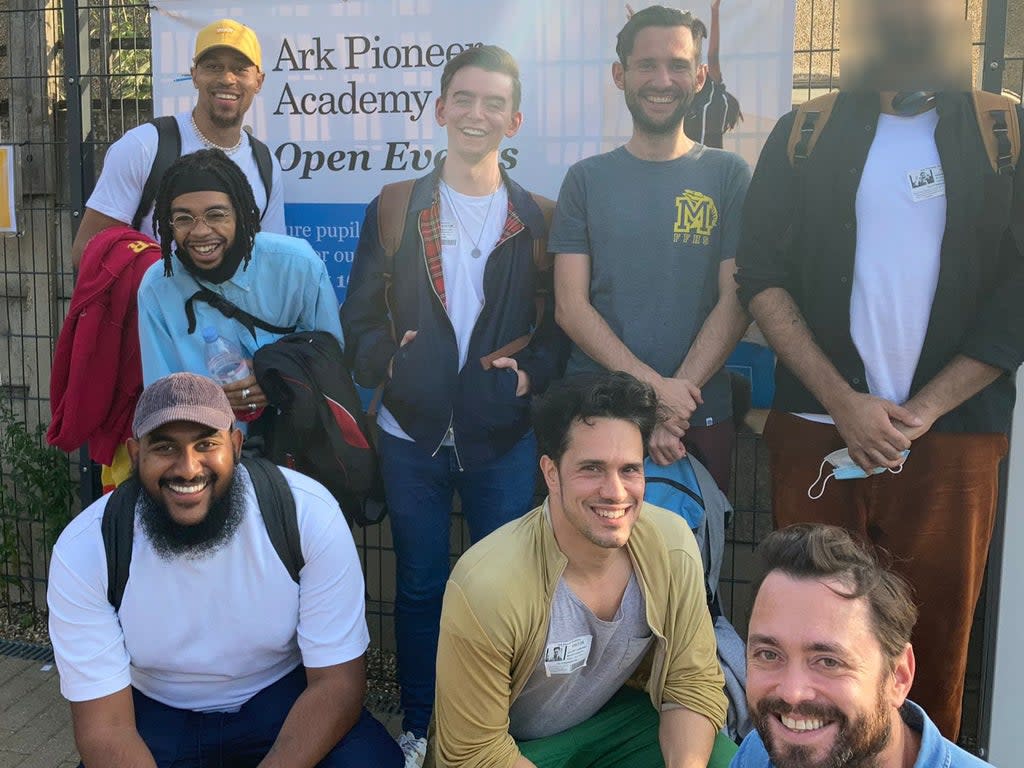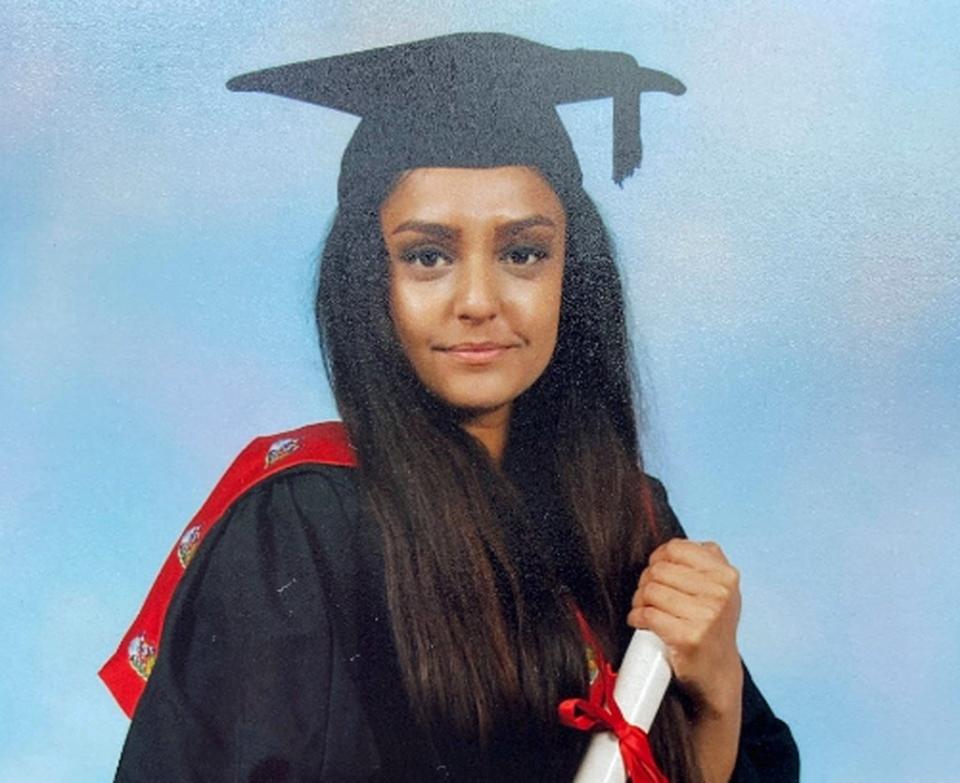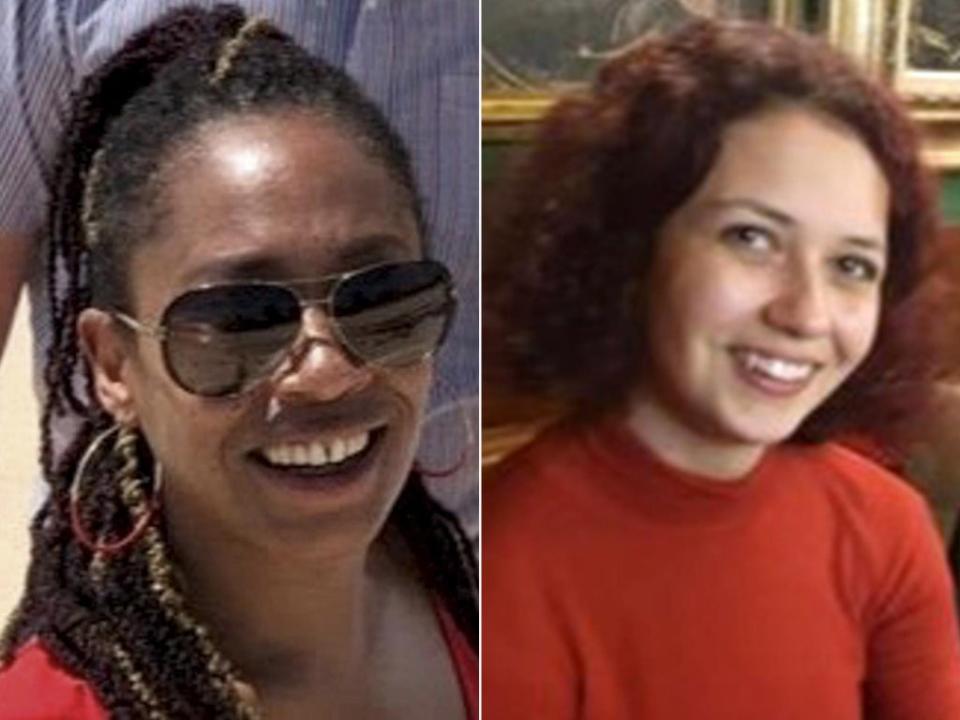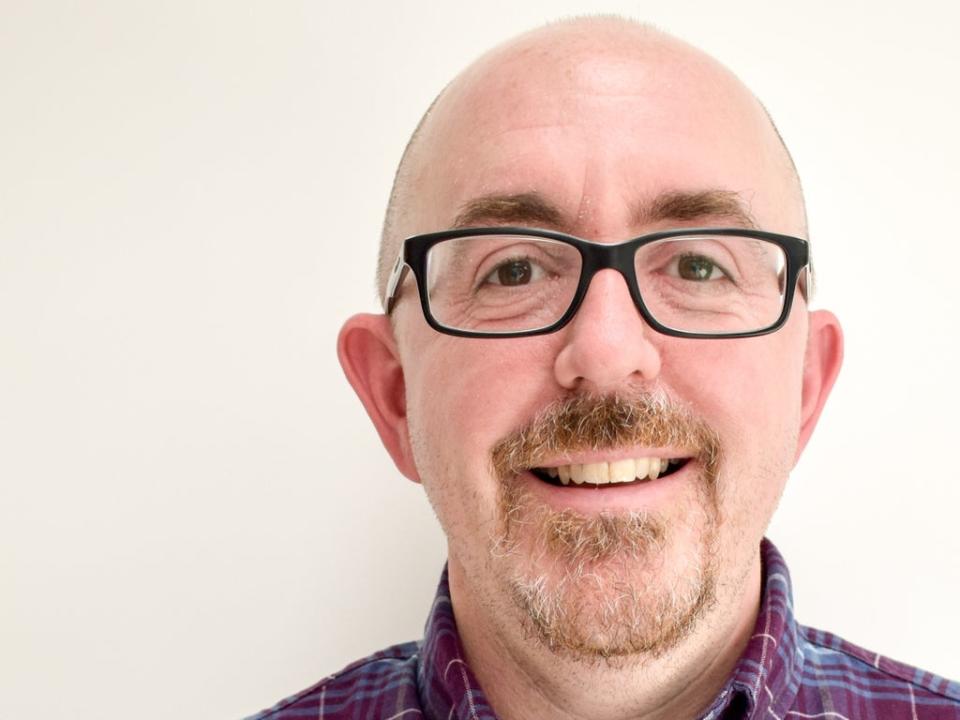Meet the men joining the fight to end violence against women

John Davis was walking through his local area in north London at 10am one Friday when he saw a man screaming profanities at a woman. The woman, says Davis, was ignoring the abuse as best she could. “I asked her if she was alright, and she told me: ‘I’m fine, but thank you’,” Davis tells The Independent. “The man saw that I had spoken to her and came right up to me, screaming and swearing in my face and he pushed me – it was a very uncomfortable situation.”
Despite his discomfort, Davis, 51, said he would intervene again, should he see a woman being harassed. “I hope she felt seen and that somebody was looking out for her. I am absolutely resolved that I would do the same thing again if I saw it,” he says.
Davis is one of hundreds of men who have recently begun volunteer training at Beyond Equality, a charity that engages with men and boys to promote gender equality and prevent gender-based violence.
The group saw an “explosion” in men coming forward to join it following the death of Sarah Everard, who was kidnapped, raped and murdered by Met Police officer Wayne Couzens in March this year. Last month, Couzens was sentenced to a whole-life term. Everard’s case sparked nationwide outrage and calls for more to be done to tackle violence against women and girls.
According to Counting Dead Women, a group tracking femicide in the UK, in the six months since Everard’s murder, at least 80 women have been killed where a man is the principal suspect, including sisters Nicole Smallman and Bibaa Henry, who were found dead on 8 June. A 19-year-old named Danyal Hussein was convicted of their murder and received a minimum term of 35 years. South London school teacher Sabina Nessa, 28, was found dead on 18 September and a 36-year-old man, Koci Selamaj, has been charged with her murder.

While the central narrative about women’s safety has been focused on measures women can take to protect themselves – for example, the Met Police advised women to “flag down a bus” and be more “streetwise” in order to stay safe – many women on social media have asked what men were doing to help tackle the problem of male violence against women.
In the two weeks after Everard’s death, 150 men contacted Beyond Equality to volunteer with them. Previously, they had two men a week on average getting in touch. In the last week alone, the charity told The Independent, it received around 130 messages from men wanting to volunteer and schools inviting them to carry out workshops.

Daniel Guinness, managing director of Beyond Equality, says they have been encouraged by the surge of interest. “When we talk about social change, a lot of people feel that if they are not part of the group that’s being liberated, empowered or protected, they jump to the conclusion that they’re not part of the future,” he said. “But we say it’s essential that people like them are part of that future, because otherwise the future will remain as it is now. We’re positive you can be part of this and we want to help you become the person you want to be, but what does that look like?”
Other initiatives driven by men have also been launched recently. Last week, Police Scotland launched its campaign to fight sexual violence, called Don’t Be That Guy. Led by DCC Malcolm Graham, it targets younger men between the ages of 18 and 35 and aims to challenge them to examine their own behaviour and actions towards women. A video released for the campaign was praised for directly addressing men, saying: “Most men don’t look in the mirror and see a problem, but it’s staring us right in the face.”
It is men’s responsibility to change their behaviour
DCC Malcolm Graham, Police Scotland
Graham tells The Independent: “It is men’s responsibility to change their behaviour. The responsibility and privilege belongs to men, and we should use the voice we have to speak out and make it clear. We want to give men the information, context and confidence to be able to challenge everyday [violence], and create a culture where they can have open conversations.”

Elsewhere, a new non-profit group called What Can I Do? has also emerged to tackle domestic violence. The group’s goal is to “empower men to understand and show how they can help to make women feel safe as a positive step towards preventing domestic violence”.
Founders Mark Hegarty and Gauri Taylor-Nayar say one of the most important things the group does is provide a space for men to hear from victims of domestic violence and be educated on the lifelong impact such brutality has on women’s lives.
“Until Sarah Everard’s case hit all of us, whilst I knew violence against women went on, it wasn’t really on my mind, I was just living my life,” said Hegarty. But, he says, being confronted and challenged about their behaviour is not something men are used to, and they often respond in a “combative” manner.
“For men to get involved, we need to stop shouting and we need to talk, we need to work together,” he adds. “Most blokes like me, you get shouted at, filters go up.”
Lucan Creamer, who has completed Beyond Equality’s volunteer training, says there was a time when he would have a knee-jerk negative response to anyone questioning his behaviour. “I was bullied as a child and I grew up around a lot of competitive sports, so I know where [that reaction] comes from,” the London-based Australian business owner says.

Since doing the training, Creamer says he now responds differently and feels empowered to challenge other men who say crass and misogynistic things about women, although it is not always easy. “If I’ve called someone out in public for making misogynistic comments and they challenge me, I’ll explain to them why I don’t appreciate their comments. It’s hard sometimes to keep a level head, there have been many times where someone will swear and tell me to get f****d.”
Matt Ballantine, 51, who has also begun volunteer training with Beyond Equality, says being discriminated against having grown up in Northern Ireland in the 1980s – in the midst of The Troubles – has made him more open-minded to a divergence of opinions.
“When you’re told you’re in a position of privilege, most people’s instinctive reaction is that someone is trying to take that away from them,” he says. “That’s not a great way to start a dialogue, but if we can instead start with a conversation about that time you felt you were different, that time you were a bit of an outsider, that time you didn’t feel quite safe, maybe that’s part of how we get them to open up and talk. Everybody comes from different levels of society and privilege. It’s a big part of getting the message through.”

However, Davis worries that approaching the subject in a supportive manner without harsher repercussions for committing acts of violence against women may be a hindrance in the future. “The tone used by the training has always been extremely supportive and open. Hectoring and being aggressive may not be the right tone for men to listen and respond, but I fear that only employing that kind of supportive, nurturing tone without some of the stick element of misogyny being a crime and suchlike is only going to take you so far,” he adds.
If we can start with a conversation about that time you felt you were different, that time you were a bit of an outsider, that time you didn’t feel quite safe, maybe that’s part of how we get [men] to open up and talk
Matt Ballantine
Taylor-Nayar of What Can I Do? agrees. She says we need to continue involving men in any way possible. “It’s a case of not just listening, it’s conversing. If we’re going to end this war of violence against women, who are we pointing the finger at? We’re pointing the finger at male perpetrators. How can you end a war without actually involving that which you are accusing? It would be like clapping with one hand. You have to involve both sides, and there has to be a point of coming together.
“Unless you have that moment, which is going to be volatile, vicious, painful, hurtful in the first instance, but you have to let it happen. And then you will find that the waves will gradually even out, and we’ll come to a point where we can discuss and talk without getting angry.”
Find out more about Beyond Equality’s volunteer training here. Resources from Don’t Be That Guy are available here, and you can get in touch with What Can I Do? here.
Read More
‘Monumental shift’: Abortion could be decriminalised in Colombia in next month
Gwyneth Paltrow ‘almost died’ while giving birth to her first child
Woman in armed forces ‘face considerable risk of sexual harassment and bullying’
How Cruel Summer exposes our lack of understanding around grooming
Women do their best work when they’re ovulating, according to new study
Fertility rates in England and Wales drop to lowest since 1938

 Yahoo News
Yahoo News 
